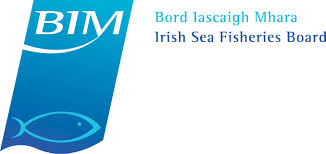Bord Iascaigh Mhara (BIM) has withdrawn its plans for a controversial large-scale organic salmon farm North East of Inis Óirr.
BIM held a board meeting on Monday after which it announced that it will not proceed with its application for an aquaculture licence for a proposed 15,000 tonne organic salmon farm in Galway Bay.
There had been widespread objections to the plans for the Galway Bay Deep Sea Salmon Farm, notably from the Galway Bay Against Salmon Cages movement, set up by freshwater angling clubs, hoteliers, guest house owners, in-shore fishermen and environmentalists.
A statement from BIM said it had withdrawn the application in line with the new National Strategic Plan for Sustainable Aquaculture Development. The strategy drawn up by the Department of Agriculture, Food and the Marine follows extensive consultation and forms the basis for the drawdown of €30 million in EU funding dedicated to Irish aquaculture development over the next five years from the European Maritime Fisheries Fund (EMFF).
Among the 24 actions agreed in the strategy was the setting of scale limits in relation to the development of individual offshore salmon farms, capping their size to between 5,000 and 7,000 tonnes.
Based on this development and current legislation that states an application cannot be altered while in the planning process, BIM confirmed that it will no longer be proceeding with its current application.
Announcing the decision, BIM CEO, Tara McCarthy said, “Taking account of the new policy framework, BIM has reviewed its work programme to match our activities against this new Plan. The scaling of fish farms was one element that had to be addressed and we have taken swift and decisive action on that. We must now re-assess our delivery of this project in the context of the new operating environment and examine the operational and commercial impacts. This will take time and a significant amount of engagement and consultation”.
“It is important to note that €30 million of EU support has been earmarked to support Irish aquaculture over the next five years to deliver on growth targets set out in the Government Food Wise 2025 report. BIM’s focus for the period will be to continue to drive and explore new innovative technologies, lead sustainability programmes and improve profitability for our producers to deliver against considerable market demand,” she continued.
BIM informed the Department of Agriculture, Food and Marine which is the licensing authority that it is withdrawing the current application.
The application proposed that the 15,000 tonne capacity of the farm would be built up over a four year period. BIM predicted that within four years, it would be running at full capacity and could have created 350 jobs directly, and a further 150 indirect jobs, including the supply of fish feed, netting, transportation and a range of other services.
Overall, according to BIM, the project had the potential to generate annual expenditure on wages and salaries locally of some €14.5 million.


